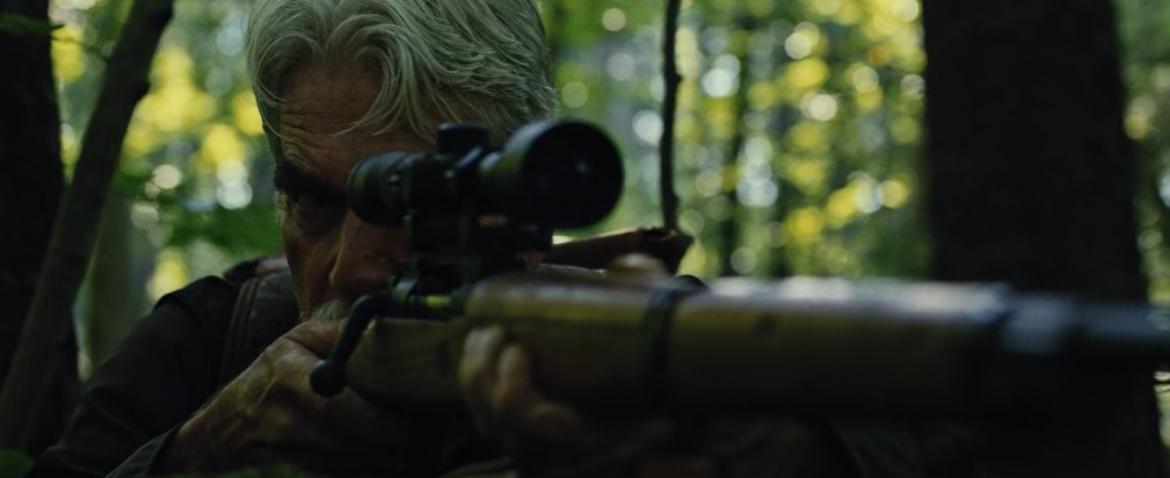
The Man Who Killed Hitler and Then The Bigfoot (Fantasia 2018) (Movie Review)
A title should never be the one defining reason you choose to see a movie. Something as specific and bizarre as The Man Who Killed Hitler and Then The Bigfoot is just so out there it would be hard for anyone to resist curiosity. Let me be the first to tell you that Robert D. Krzykowski's debut feature is not what it appears to be.
By name and by poster, this film conjures an expectation of a potential silly cult classic in the making. A gritty B-Movie that without context has the potential to be a silly gorefest. At the very least maybe it would defy that expectation and be a dead serious hunt and kill tension filled adventure thriller. However, it is none of those things.
The Man Who Killed Hitler and Then The Bigfoot is a quiet contemplative character exploration of a man with a dormant propensity for violence, but has no desire to have to use it. Starring an always engaging Sam Elliot as Calvin Barr, a man living a quiet life in a small town lamenting the kill that he can't talk about that's left him with a fortune that he spends mostly at a local dive bar. However, when the FBI comes calling on his tracking ability to dispose of the legendary Bigfoot who is carrying a disease that threatens to wipe out humanity, he finds himself conflicted with whether or not he can or even wants to kill another living thing.
If not for the fact that this movie name drops Bigfoot and includes the plot device of "a virus that could end humanity" this movie would barely qualify as a genre piece. Apart from an out-of-place gross out moment during the climax, the film is very passive. It's use of violence is as skittish as Calvin's want to commit it. The entire first half is merely Elliot living the life of an old man who scoffs at the idea of someone losing a winning lottery ticket and having flashbacks of the mission that's defined his life.
In what's perhaps the film's strongest scene Calvin finally breaks his silence about his WWII mission to the FBI agents who've tracked him down for his latest quest. The disdain in his voice as he points out how his kill was merely a man whose words had already spread like an unstoppable virus and that what he had done was more or less a pointless act is some of Elliot's finest work in the film. It's a shame that there's so much confusion tonally on what this movie should be. A quiet examination of a tortured character is perhaps the weakest direction this one could have taken, but Elliot makes it work as well as he can. Yet, there's no denying how inherently silly it becomes watching him wrestle with the legendary Bigfoot when so much of the film was wrapped up in a somber tone--one can't help but laugh at how out of place the entire finale is.
The Man Who Killed Hitler and Then The Bigfoot writes a check that is misleading in its intention, but delivers on its promise no less. Cinematically it's the equivalent to being duped into an afternoon of sugary shenanigans at grandma and grandpa's and being met with a handful of Werther's--which are fine, but don't give you the sugar rush you were really craving.
Screened as part of the 2018 Fantasia Film Festival.

